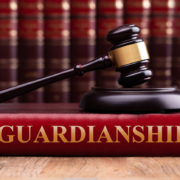Guardianship in Orlando: Ensuring Protection for Vulnerable Individuals
Orlando is a thriving city with families from all walks of life, many of whom find themselves facing difficult decisions about guardianship. Whether due to age, disability, or medical conditions, some individuals require legal protection to ensure their well-being. Guardianship cases involve serious legal responsibilities, and while the process is designed to safeguard vulnerable individuals, it must also protect them from potential abuse or exploitation.
As an Orlando Guardianship Attorney, I work with families throughout Orange County, ensuring that the legal rights of those under guardianship remain protected. Whether you are seeking to become a guardian, challenging a guardianship, or advocating for the rights of a loved one, I can provide the guidance and representation you need. To schedule a consultation, call 1-888-640-2999 today.
Understanding How Florida Law Defines Guardianship
Guardianship is a court-supervised process where a responsible individual or entity is appointed to manage the affairs of a person who cannot do so independently. Under Florida Statutes Chapter 744, guardianship is considered a last resort, used only when less restrictive alternatives are unavailable.
Individuals under guardianship are legally known as wards, and their rights remain a primary concern in all legal proceedings. The court determines what rights, if any, should be removed from a ward and transferred to the guardian. However, Florida law also ensures that wards retain as many rights as possible.
Types of guardianship in Florida include:
- Plenary Guardianship: Grants full authority over personal and financial decisions.
- Limited Guardianship: Transfers only specific rights from the ward to the guardian, allowing the individual to retain some decision-making power.
- Guardian Advocacy: Designed for adults with developmental disabilities, allowing a guardian to assist without a formal finding of incapacity.
The courts aim to protect the ward’s best interests while ensuring that guardianship does not result in unnecessary loss of independence.
Legal Protections for Wards Under Florida Law
Guardianship is intended to protect, not control, individuals who need assistance. Florida law contains multiple safeguards to prevent abuse and ensure that wards retain their dignity and autonomy whenever possible. The following legal protections help maintain fairness and oversight in guardianship cases:
Right to Due Process
Before a guardianship is established, the alleged incapacitated person has the right to legal representation and a court hearing. Under Florida Statute 744.331, a three-member examining committee evaluates the individual’s capacity. This process ensures that guardianship is not imposed unnecessarily.
Retention of Certain Legal Rights
Even when a guardian is appointed, wards retain specific rights unless the court determines otherwise. Under Florida Statute 744.3215, wards may retain:
- The right to be treated with dignity and respect.
- The right to a fair hearing to challenge guardianship.
- The right to communicate and visit with family and friends.
- The right to privacy in personal affairs.
Court Supervision of Guardians
Guardians are held to strict legal and ethical standards. The court monitors all guardianship arrangements to prevent mismanagement or abuse. Under Florida Statute 744.367, guardians must:
- File an initial guardianship report detailing the ward’s condition and assets.
- Submit annual financial reports accounting for all expenditures.
- Obtain court approval for major financial decisions, such as selling property.
Failure to comply with these reporting requirements can lead to court sanctions or removal as a guardian.
Protection Against Exploitation
Guardianship laws prevent financial exploitation by requiring strict oversight of how a guardian manages a ward’s estate. If family members suspect a guardian is misusing funds or failing to act in the ward’s best interests, they can file a legal petition to investigate and remove the guardian if necessary.
When Guardianship Is Contested
While guardianship is meant to protect wards, disputes can arise over who should serve as a guardian, how the ward’s rights are handled, or whether guardianship is necessary at all. These cases often involve:
- Allegations of guardian misconduct, such as financial mismanagement or neglect.
- Family disagreements over who should be appointed as guardian.
- Wards challenging their own guardianship, arguing they have regained capacity.
Florida law provides legal recourse for those who wish to contest a guardianship. A ward or an interested party can petition the court for a modification or termination of guardianship, ensuring that decisions reflect the individual’s best interests.
FAQs About Guardianship Rights in Florida
Can a ward challenge their own guardianship? Yes. If a ward believes they have regained the ability to make decisions, they have the right to petition the court for restoration of their rights. A medical evaluation may be required to support this claim.
Are there alternatives to guardianship? Yes. Florida courts encourage the use of less restrictive options when possible. These include durable power of attorney, healthcare surrogates, and trusts. If these alternatives provide sufficient protection, guardianship may not be necessary.
What happens if a guardian abuses their authority? If a guardian misuses funds, neglects their duties, or violates a ward’s rights, they can be removed by the court. Family members or concerned parties can petition for an investigation, and if wrongdoing is found, the court can impose penalties or appoint a new guardian.
How does the court decide who should be a guardian? The court considers multiple factors, including the proposed guardian’s relationship to the ward, financial responsibility, and ability to provide proper care. If multiple individuals seek guardianship, the court determines which candidate best serves the ward’s interests.
Can family members access a ward’s financial records? Guardians must submit annual financial reports to the court, which are typically available for review by interested parties. If a family member suspects financial mismanagement, they can request a court review of the guardian’s actions.
Can a guardian prevent a ward from seeing family members? A guardian cannot unreasonably restrict a ward’s contact with loved ones. Florida law upholds the ward’s right to maintain relationships unless there is evidence that the contact is harmful.
What happens if the ward’s condition improves? If a ward’s mental or physical condition improves significantly, they can petition for restoration of their rights. The court will evaluate medical evidence and determine whether full or partial capacity can be reinstated.
How long does guardianship last? Guardianship remains in effect until the ward passes away, regains capacity, or a court determines that guardianship is no longer necessary. If a guardian resigns or is removed, the court appoints a replacement to ensure continued protection for the ward.
Contact Orlando Attorney Beryl Thompson-McClary at 1-888-640-2999 For A Consultation
Guardianship cases require careful legal handling to ensure the ward’s rights are respected while providing necessary protection. Whether you need to establish guardianship, contest an existing arrangement, or advocate for a loved one’s rights, I am here to assist. Call 1-888-640-2999 to schedule a consultation and discuss your guardianship concerns today.















